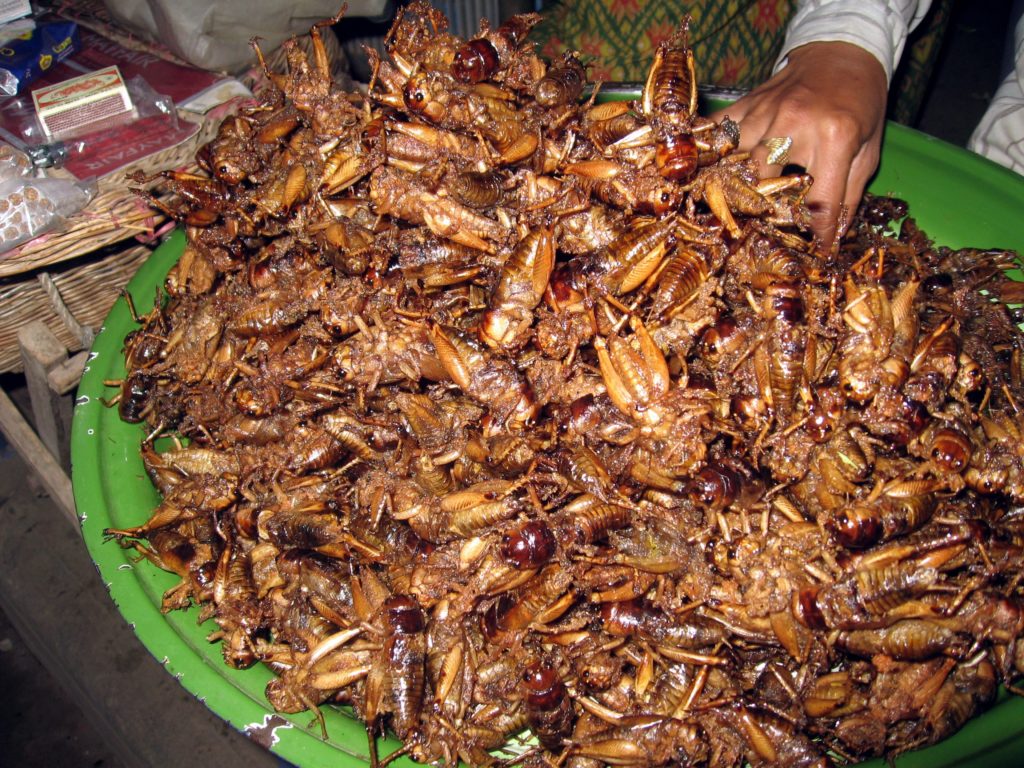Our primate ancestors consumed insects regularly as a food source because they were easy to come by and provided protein and other nutrients to the body. According to a recent Rutgers study, humans and primates today are still able to eat and digest insects easily. This finding may put insects on the menu for consumers as they continue to support the production of sustainable protein.
The report, published in Molecular Biology And Evolution, found that all modern primates (including humans) still possess the genes and enzymes necessary to digest the exoskeletons of insects. Researchers studied 34 primate genomes to look for a stomach enzyme known as CHIA, which is able to break down the hard exoskeletons of insects, which are made of chitin. Early primates were found to have three or more copies of the CHIA gene, however most modern primates are found to have only one copy.
“As some primates evolved to be larger and more active during the day than at night, their diets shifted a bit to other foods like fruits and leaves,” said Mareike Janiak, a doctoral candidate at Rutgers and lead author of the study. “Insects became less important and their digestive enzymes changed, but most living primates still have at least one working CHIA gene.”
More research needs to be done on how effectively humans can digest chitin in insects. According to Janaik, there is no hard evidence proving that human stomach enzymes can digest the exoskeletons of raw insects.
“Unfortunately, most of the human research so far has been done using Western culture participants rather than comparing people from various cultures that actually eat insects regularly,” she said. “But for humans, even if we didn’t have an enzyme, the exoskeleton becomes a lot easier to chew and digest once the insect has been cooked.”
Several countries around the world already use insects as a source of food. Research from the United Nations finds that two billion people around the world eat insects regularly in their diets. About 1,900 species of bugs are edible and are good sources of essential nutrients like protein, healthy fats, vitamins, minerals and fibre.
Although a lot of North American consumers consider insects to be pests, the industry for edible insects is growing in America. There are already nine states that have popular insect restaurants including Typhoon in California and Toloache in New York. Popular edible insects include beetles, grasshoppers, locusts, crickets and worms.
With the edible insect market size set to be valued at $520 million by the year 2023, which represents 40 percent growth over 2016, the insect segment looks to be promising for food companies.











Join or login to leave a comment
JOIN LOGIN